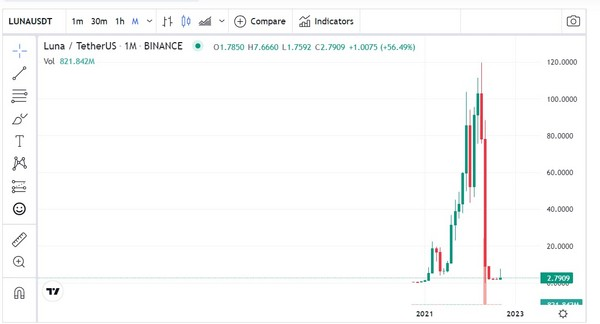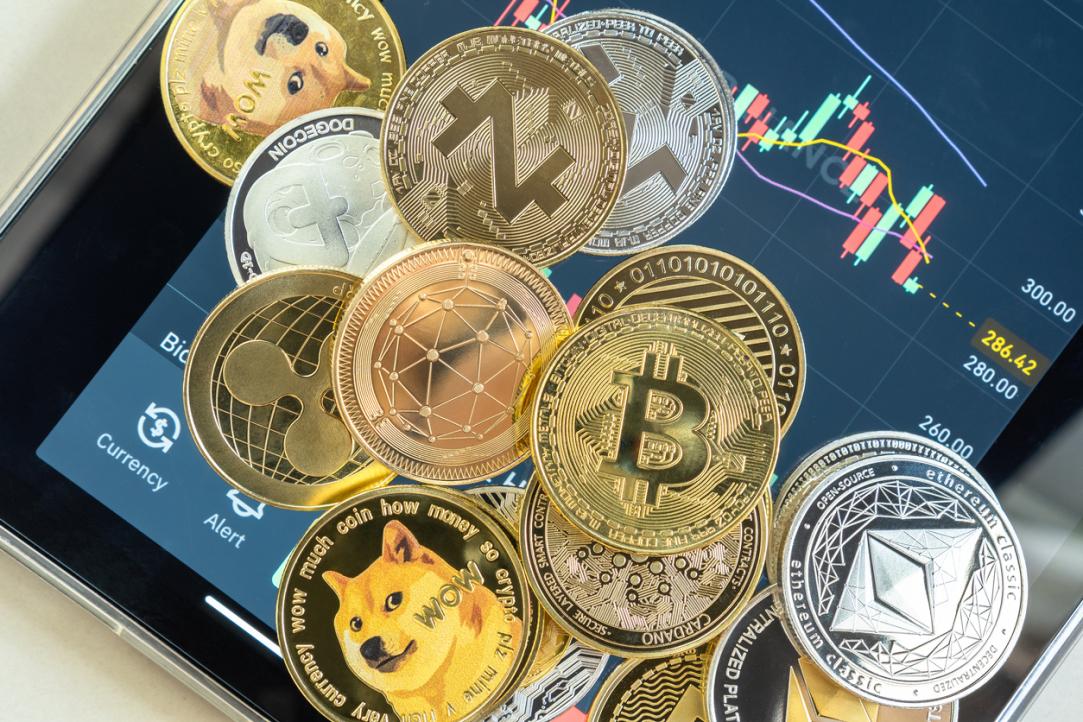People's interest in cryptocurrencies is still high despite the large-scale ups and downs of "crypto". This is a hot topic not only among investors, but also in mass culture, because both Elon Musk and an ordinary student invest in "crypto".
Cryptocurrency is a digital currency that is decentralized and encoded with a certain cipher. The most attractive characteristic is its anonymity. When buying cryptocurrency, you can be sure that no one will know how much and in what volume you have purchased it.
The next feature is the ease and speed of transactions. All you need to start working with cryptocurrencies is to create a wallet on any of the exchanges, pass authentication, and you're done. No brokers, contracts, limits.
In addition, making a transfer with crypto is much easier than, for example, through the same SWIFT system. The ease of using cryptocurrency is that at any time, anywhere in the world, you can withdraw your assets to an available card.
The possibility of high earnings attracts many. But where there are great prospects, there are always great risks. Most of all, every investor or trader is afraid of the devaluation of the currency, or the "scam" of the crypto project.
Here's an example, let's remember April-May 2022, and what happened to the Luna (Terra) currency.
The Terra blockchain combines the advantages of cryptocurrencies and stablecoins (currencies tied to real currency. - Ed.). We can think of it as a two-part cryptocurrency: Terra, a stablecoin, and Luna, a cryptocurrency. Terra itself is not a stablecoin; she is attached to UST. UST is a stablecoin pegged to the dollar, so all things being equal, Terra should have been safe.

The problem is that UST is not a standard stablecoin like the others; it has no physical reserves and instead relies on smart contracts to maintain the value at or as close to $1 as possible.
However, the current crisis has led to a depreciation of the UST. As the price fell so much that investors rushed to liquidate their positions faster than the algorithm could handle. This caused the fixed price of the stablecoin to drop, at which point both parties (Luna and Terra) fell down precipitously.
Investing VS Trading
Currently, according to Coinmarketcap, the cryptocurrency market capitalization is more than 812 billion dollars. However, this figure is against the background of the decline that is currently observed in all financial markets. Even at the beginning of the year, the capitalization amounted to more than 3 trillion dollars.
The dynamism with which the crypto industry is developing is unmatched by any market, be it the capital market or the debt market. And this is just the beginning, because in the future, the volume of the crypto market may exceed the volumes of all existing markets.
So how not to miss the chance to earn, which strategy to choose?
In general, everyone has a choice of 2 options: engage in trade, that is, trading, or invest for the medium or long term. It all depends on your goals, risk appetite, and financial capabilities.
Let's analyze each of the strategies.
Cryptocurrency trading involves buying and selling currency in a short period of time. It can be a day, an hour, or even with a difference of a few minutes. The difficulty of such a process is to guess the exchange rate, whether the price will "climb" up.
According to statistics, 95% of all traders fail. This does not mean that you have a 95% chance of failure, but rather that for every hundred traders that enter the market, statistically only five make a profit. This is a ratio that begs the question, why are so many traders losing money?
First, most people who start trading do so without a trading strategy or plan. A trading plan usually includes investment objectives, a risk management strategy, entry and exit points, and any other rules or guidelines to follow. Without a clearly defined trading plan, the emotions of inexperienced traders will take over and lead to impulsive decisions.
Another common mistake traders make is excessive leverage. Leverage is when you borrow money to increase your exposure to the market.
While leverage can be a powerful tool for generating large returns on small investments, it can also lead to significant losses.
For example, let's say you have $1,000 in your trading account and you use x10 leverage to buy $10,000 worth of Bitcoin.
If the price of Bitcoin goes up by 10%, you've just made a 100% return on your investment.
However, if the price of Bitcoin falls by 10%, you will simply lose all your funds. Therefore, leverage should be used with caution.
Many people like to trade cryptocurrency because it can be very similar to gambling. Of course, trading is much more interesting than just investing. But is it worth it?
Smart investing in crypto assets is less risky and more stable.
Evaluating and choosing a reliable cryptocurrency is much more difficult than, for example, stocks or bonds, but everything is possible.
Much of the value of cryptocurrencies is based on assumptions about the future development of both the currency itself and the blockchain on which it is created.
This approach is explained by the main characteristics of cryptocurrencies: there is no centralized authority to manage them, no accounting information, income or profit to analyze.
You may have come across the term “HODL”. HODL is an acronym for "Hold on for Dear Life", which was coined when a Bitcointalk forum user accidentally wrote "HODL" instead of "HOLD".
Basically, it means buy and hold forever. This strategy is based on the belief that cryptocurrency prices will continue to rise significantly in the long term. In addition, when there is a decline in the market, "hodlers" do not sell their assets in a panic, but expect the recovery of the market and profit in the future.
HODLing can be an ideal entry strategy for new investors. Compared to the technicalities of, say, day trading, which is extremely complex and time-consuming, HODLing can be much simpler. This is analogous to the "buy and hold" strategy used in the stock market.
The disadvantage of such a strategy is the amount of time it takes to get the desired profit.
The time required depends on how much you as an investor aim to earn in the first place. For example, if the goal is to make a profit of 2%, it will probably take a short time to reach that goal. However, more often than not, most investors aim to at least double their deposit, which takes time and patience.
aim to at least double their deposit, and this requires time and patience.

The digital euro: how Europe is preparing to launch an official cryptocurrency
Cyclicality of the cryptocurrency market
Many investors, especially beginners, refuse to invest in cryptocurrency after the first drop. But do not forget that both stock markets and the cryptocurrency market are characterized by cyclicality.
There have been and will be crises, some of them can be predicted, and profitable positions can be closed. And some come unexpectedly.
However, this loss is only possible if you dare to sell your assets. Therefore, the main thing here is to be patient and wait out the downturn. After all, every crisis is a new opportunity, and every recession is a prerequisite for the next growth.
Currently, the world economy is going through a crisis, and crypto markets are no exception. The price of most currencies has declined significantly against the backdrop of future uncertainty and investors' reluctance to take on much risk.
However, on the other hand, isn't now the time to create your first crypto portfolio and profitably open positions when prices are at a fairly low level? Or should I add a couple of coins to my existing portfolio, thus adjusting my portfolio and reducing the gap in prices?
The biggest danger in long-term investing can be low-quality cryptocurrency, which can lose its value. Therefore, not knowing how the cryptocurrency market works, which indicators to focus on, leads to a loss of capital. Never invest in something you don't know. Even the advice of friends, colleagues or relatives can be wrong.

